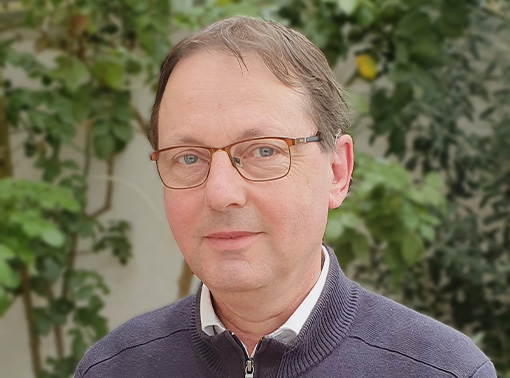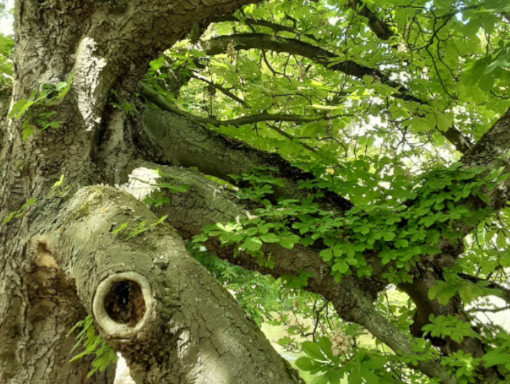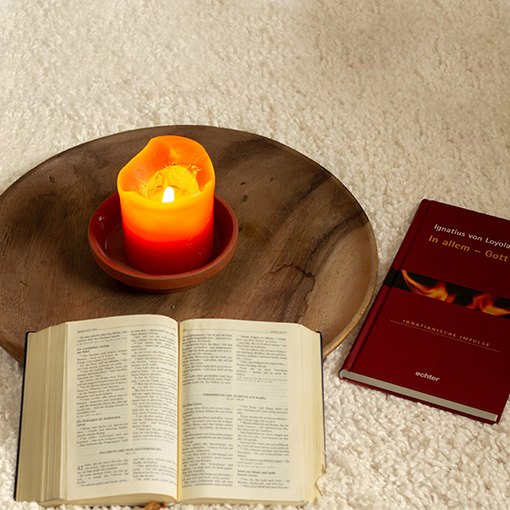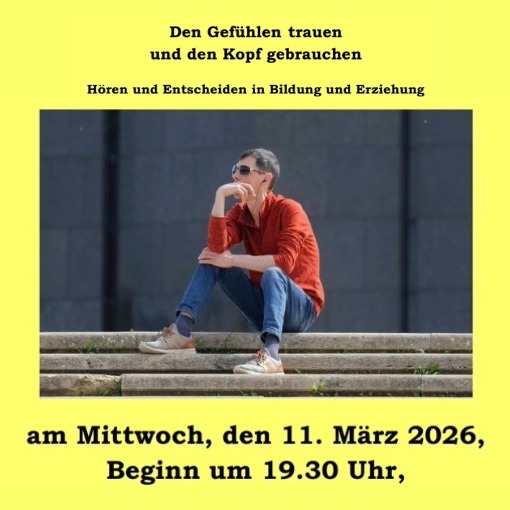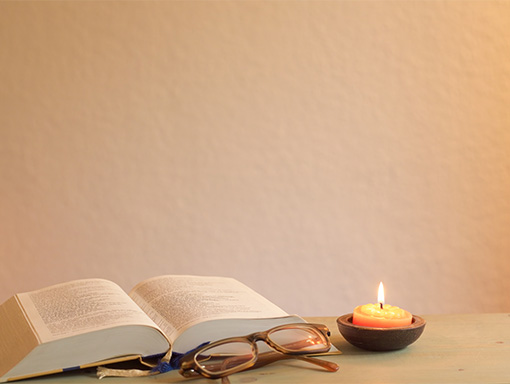Dr Michael Stöhr is a memberof CLC and is running for the Ökologisch-Demokratische Partei (ÖDP) – Die Naturschutzpartei (Ecological Democratic Party – Party for the Protection of Nature) in this year’s European elections. As number two on the list, he stands a good chance of becoming a Member of the European Parliament from this summer. In the following interview, he gives us an insight into his political convictions, which are to a large part based on the foundations of his Christian faith.
The interview is available in German as a video on YouTube under the following link: https://youtu.be/soIZ3vE8mKg
CLC: Dear Michael, thank you for taking the time to tell us a little more about yourself and the background of your political commitment. You are a member of the GCL in Munich – and are running as a candidate for the ÖDP in the European elections. That’s just tells us the basic facts about you. Who is Michael Stöhr?
MS: I am 59 years old and the father of three young adults. In the course of my life, I have volunteered to set up two citizens’ energy communities and contributed to setting up an eco-social housing project. I cultivate a simple lifestyle, don’t have my own car and live in a co-operative flat. I travel by train. I like to carry my luggage in my rucksack, so I have my hands free. And: I am a Catholic Christian.
CLC: What does being a Christian mean to you?
MS: For me, it has several dimensions: a personal relationship with God, the global community of the church, ecumenical co-operation with other denominations and intellectual reflection. As a child and teenager, I was brought up as a Christian: Catholic family, parish, ecumenical prayer group at school … I first came into conscious contact with environmental issues at the Catholic St George’s Scout Association. The integration of people with disabilities was also an issue. There was a young person with Down’s syndrome in my group.
CLC: You are hearing impaired yourself, but you can understand me well …
MS: Yes, my hearing aids are now connected to the computer via Bluetooth. I can understand you very well. The rooms in the European Parliament are equipped with induction loops. I will be able to understand what is being said into the microphones very well.
CLC: You spoke about several dimensions of your Christianity …
That’s right. At university, I studied Christian Social Studies for three semesters as part of the Studium Generale and discovered that you can also approach faith intellectually. I then experienced this intensively as holder of a scholarship of the Cusanuswerk Episcopal Study Foundation.
At Pentecost 38 years ago, I took part in an Ignatian retreat for the first time. Here I discovered the personal spiritual dimension of faith.
But I have also experienced the universal church in many ways. I would like to mention four weeks in Madagascar 29 years ago. There I saw a church that lived with people in extreme poverty and worked with them to find simple, locally adapted solutions to their specific problems: dry rice cultivation, concrete reinforcement with bamboo, more efficient wood-burning stoves, etc. Such experiences also shaped me – and my faith.
CLC: How did you find your way to the Christian Life Community (CLC)?
MS: After my first retreat 38 years ago, I lived in France for six years. There I got to know a church very different from the one in Germany. Through the Jesuits in the university community in Grenoble, I learnt more about Ignatian spirituality.
However, I only came into contact with CLC 29 years ago, when I had already been living in Munich for three years. I met a Jesuit on St Mary’s Square (the central square in Munich) who was collecting signatures against landmines. We got talking and he gave me the address of the CLC.
An important element of my life in CLC is the European holidays, in which I have taken part in ten times over the last 25 years. I have made many contacts and I have visited CLC groups in Poland, Lithuania and Latvia when I was travelling to professional EU project meetings.
CLC: “Professional EU project meetings” – that sounds like you also travel internationally a great deal in your job. What do you do for a living?
MS: I am a physicist. I did the experiments for my doctoral thesis in a French-British-Polish working group at the European High Magnetic Field Laboratory in Grenoble, France. I have been working in European research and development projects on renewable energies for 32 years. I have been involved in rural electrification in Africa, regional development, photovoltaics, wind energy, biofuels, seawater desalination and much more. I worked with project partners from almost all European countries, with municipalities, regions, energy agencies, research institutes, industrial companies and others.
CLC: So you are European through and through – or would you still describe yourself as a citizen of the world?
MS: I don’t like being labelled, but the European label would fit. I associate many positive and emotionally powerful experiences with Europe. My first was the European scout meeting Eurofolk in 1981 in Westernohe in the Westerwald. I cycled there with some of my scout group. It was one big, breathtaking festival, an experience of community across language barriers, a celebration of all the diversity that Europe has to offer.
CLC: Does Europe or internationality in general also play a role in your private life?
MS: The neighbourhood where we live brings together two aspects of my life, the international and the ecological, in a wonderful way: People from 110 nations live here. Around 25 languages are spoken in my parish. Thanks to the planning of our district as a sustainable neighbourhood, I can implement many of the things here in my private life that I have campaigned for both professionally and now politically: For 23 years, my household has been one hundred per cent supplied with renewable energy. Eighteen years ago, we became the German energy-saving champion in the tenant category. This was only possible thanks to the appropriate political framework, the co-operative we built with, the car-sharing cars on our doorstep, the Renewable Energy Act and many other things. It was only in this environment that I was able to develop my personal commitment. This shows how important political framework conditions are for personal commitment to flourish.
CLC: So let’s move on to politics: you’re running for the ÖDP, why this small party?
MS: The ÖDP stands for nature conservation, but also for the protection of life. In addition, there are now many unique selling points that are important to me: Great distance from industrial lobby groups, commitment to direct democracy, the realisation that infinite growth is not possible on a finite planet, orientation towards the common good, recognition of family child-rearing and care work, the significant reduction of income and inequalities of wealth, and others.
The ÖDP may not have the “C” in its name, but it does have it in its programme. Many practising Christians are committed to the party on the basis of their faith. An ecumenical prayer service is part of the programme at federal party conferences – participation is of course voluntary.
CLC: How long have you been politically active?
MS: Since the 1990s. I was head of the Munich regional group of the association for renewable energies EUROSOLAR and prepared a referendum in a working group of the Bavarian solar initiatives in favour of cost-appropriate remuneration for renewable energy in Bavaria. Our work then served to prepare the Renewable Energy Act of 1 April 2000, which rendered the referendum superfluous and made solar power unrivalled in price within a few years thanks to the mass production it triggered. This experience shows me that even small groups can provide the decisive impetus for global change when the moment is right.
I joined the ÖDP ten years ago and was mainly involved in the federal working group on climate and environmental protection, transport and energy. For the past two years, I have been Chairman of the Federal Programme Commission and was in charge of the 2024 European election programme. In October, I was nominated for second place on the list for the European elections.
CLC: Second place on the list sounds good – what are your chances of being elected?
MS: Many people like the ÖDP and its programme very much. They just need to know that they can be elected. There is no formal 5 per cent hurdle in the European elections. If the ÖDP achieves more than two per cent, I will become an MEP. The chance is real.
CLC: Then you would have a completely new task ahead of you. What does it mean for you to enter the European Parliament?
MS: For me, it is not a personal career move, but the assumption of a service. For me, it means working for the preservation of our livelihoods, for social balance and the common good, for human rights, democracy and the rule of law – just like in my previous life, only with an office that offers greater opportunities for influence.
As a Christian, I know that not everything depends on me, but that my commitment can make a difference, that it is important to be alert for the moments when something can be changed for the better.
CLC: What is it specifically that you want to achieve in Europe – in the European Parliament?
MS: There are a few guiding principles that will run through all my decisions: Common good for all before profit for a few, preservation of the natural basis of life, human dignity.
These leitmotifs are echoed again and again in the specific demands of the ÖDP’s European election programme. They can also be assigned to the basic principles of Christian social teaching …
CLC: … which are certainly not familiar to everyone, even within the church. I’m afraid we need a little digression here. We are talking about the three principles of “solidarity”, “common good” and “subsidiarity”. What does that mean to you in concrete terms?
MS: For example, solidarity can be seen in fair trade instead of free trade agreements, the implementation and further development of the EU strategy for people with disabilities, and an adequate basic income for people who cannot have their own income.
Common good: What I have in mind here is, above all, the consistent realignment of the common EU agricultural policy (CAP) towards the common good provided by agriculture. This affects areas such as climate protection, preservation of biodiversity, water protection, animal welfare, etc. And a second important area is the promotion of energy communities for extensive self-sufficiency in city districts and communities as well as bicycle, train and public transport.
And last but not least: subsidiarity. For me, subsidiarity means: What can be sensibly regulated at the local, regional or member state level should not be transferred to the EU. Decentralized, small-scale structures should be promoted wherever it makes sense.
CLC: Are there any target groups that you will be particularly committed to? Who should definitely vote for you?
MS: I will help ensure that a good life is possible for everyone. I don’t make politics for a certain clientele. For me, however, following Jesus as a Member of Parliament means, among other things, focusing on the priority option for the poor. So I will above all listen to those who are otherwise easily ignored, i.e. not the lobby associations of the fossil energy industry, agrochemicals, etc., but rather to those who represent citizens, energy communities, rural agriculture, grassroots initiatives oriented towards the common good, nature, the climate. As someone who is severely hearing impaired myself, I will keep an eye on the needs of the deaf and hard of hearing and, for example, advocate for the promotion of sign languages.
CLC: And what role does the church play in this for you? Do you also listen to the church?
MS: The Christian churches worldwide are closer to people than many others. As a Member of the European Parliament, I have to make a decision in around 4,000 votes per year. Only for a small part can I delve deeper into the factual reasons for and against; for most of them I have to trust the assessment of others. Here I also build on my contacts within the church. I trust them to be more honest and factual than industrial lobby groups on many issues, especially when it comes to the needs of people and disadvantaged groups. Seen in this way, I also give my ear to the church, or better: to the people who are committed to Christian faith in the church. Ultimately, I will decide according to my conscience.
CLC: Thank you very much for these insights into your thinking and work. Of course, we are not doing any election advertising at this point. But we definitely wish you the success you hope for in the European elections!
